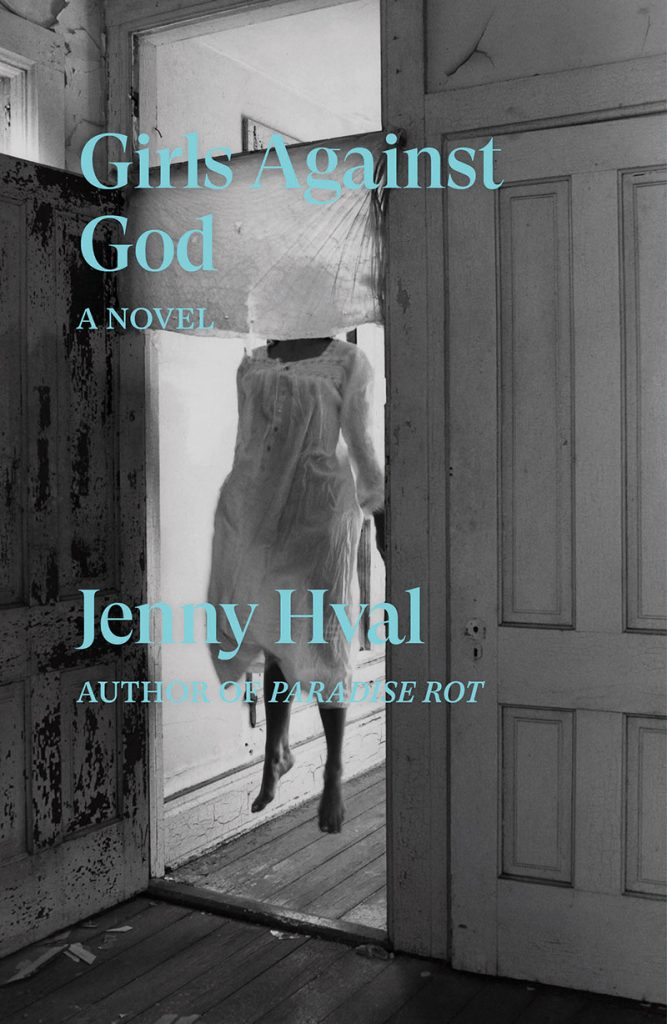Jenny Hval’s prickly second novel turns out to be the perfect place to begin my current reading project, because Girls Against God is a confronting text in every sense. At the surface level, the novel poses as an autofictional account of a young woman growing up in the stiflingly religious, provincial atmosphere of southern Norway. Raging against a society that presents a whiter-than-white face to the world whilst harbouring and nurturing attitudes of racism, intolerance and petit-bourgeois philistinism, our narrator finds a focus for her rebellion through the world of black metal music and its aggressive iconoclasm. Her passionate desire to ‘be in a band’ allies her with two other like-minded young women, Venke and Terese. Together they flirt with various styles of performance and expression, entwining their musical experimentation with the practice of modern witchcraft. They begin to think of themselves as a coven, an irritant in society’s gut, a literal ‘trash stench’.

The timeline jumps between the narrator’s schooldays and her years at college to residencies in London and New England to a moment in the near-present in which an older version of the narrator is engaged in the making of an experimental film. Girls Against God rejoices in filmic imagery and references. Derek Jarman makes an appearance, and Dusan Makavejev’s ultra-transgressive 1974 film Sweet Movie is referenced and analysed before being partially re-enacted in a scene of phantasmagorical weirdness in a school canteen. The Blair-Witch-like film Forest, whose description and analysis forms the third part of the novel, is both a metaphor for the book as a whole and a marvellous act of ventriloquism; Hval is able to translate the elusive visual language of film to the written word with remarkable acuity and power.
There is still more to be had from this book, though. Girls Against God reads almost as a polemic, a manifesto – Hval’s examination of the taboos around women’s self-expression, the persecution of ‘witches’ (and witches) and the authoritarian suppression of individual acts of rebellion and protest is the cold steel, the anger that gives this narrative its resonance. As a piece of weird fiction that places passages of memoir alongside strange slides into hallucinatory otherness and sublime terror, this book is unique, The Craft on LSD. As a record of the slow commodification of Nordic Black Metal, Girls Against God works as a fascinating piece of documentary. As a rebel yell, a scream of protest in the endless white night of Norwegian summer, it is lacerating, eloquent and exhilarating.
The novel goes still further in examining the nature and purpose of writing itself in breaking down atrophied systems and challenging norms. I especially admired Hval’s juxtaposition of the forest interludes with her startling and imaginative use of the electronic sounds (text tones, old dial-up modem sounds, skype calls) that make up the ‘cosmic internet’, a parallel natural history, a modern cosmology.
Impassioned, original and revelatory, Girls Against God is a dense, occasionally stubborn book that rewards the effort involved in reading it. Hval opens up the possibilities of fiction, fusing together music, image and thought in a web of text that is refreshing and inspirational in its integrity. One to keep.